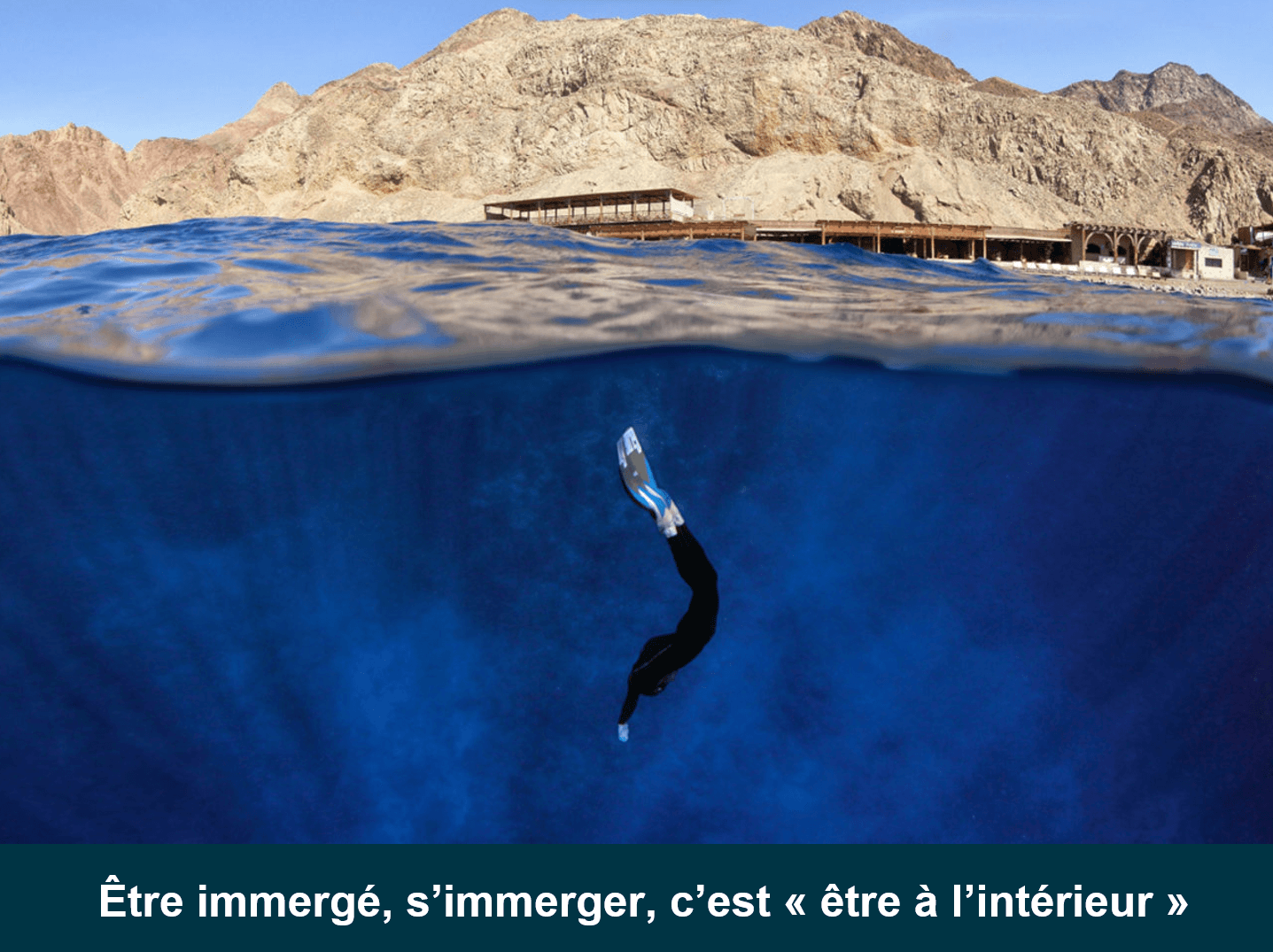1 min. reading
“Experiencing the inside”
When Mark Zuckerberg promoted his vision of the Metaverse in October 2021, he promised users an "even more immersive" experience, where they would be "in the experience", inside it. This feeling of "being inside" a computer-simulated environment has been defined by the concept of immersion since the early 1990s.
Immersion is “a strong sense of absorption of the physical and/or mental subject produced in a real situation or in apprehension of a representation that is itself realistic or illusory. Visual, auditory, and kinaesthetic perceptions and awareness are all different and complementary ways of evoking this powerful feeling of physical, mental, and emotional absorption” [[[Guelton B. (2014), « Introduction. Figures de l’immersion », in B. Guelton (dir.), Les figures de l’immersion, Rennes, Presses Universitaires Rennes, pp. 9-22.]]].

Bernard Guelton
Professor Emeritus Contemporary art, fiction, interactive devices, situated media, mobility, spatial cognition

A vast array of scientific literature from different fields (human-computer interaction, information and communication sciences, sociology, psychology, etc.) has been debating the concept and modalities of immersion in digitally simulated worlds for many years now, bringing into conflict, for example, the concepts of presence, attention, and engagement. While many immersive models are based on experiences such as virtual reality and video games, sociologist Dominique Boullier describes immersion as a specific form of attention that is extended to the web [[[Boullier D. (2008), « Le Web immersif », Quaderni, n° 66, pp. 67-80. DOI: 10.3406/quad.2008.1848]]]. Several types of immersion can be identified:
- perceptive or sensory immersion,
- narrative immersion,
- gameplay,
- social immersion,
- yearning immersion (immersion désirante) [[[- Boullier D. (2008), “Le Web immersif”, Quaderni, n° 66, pp. 67-80. DOI : 10.3406/quad.2008.1848 - Lucas J.-F. (2018), “Les figures de l’habitant dans les mondes virtuels”, Sciences du jeu, 10 | 2018 : https://journals.openedition.org/sdj/1353]]].







